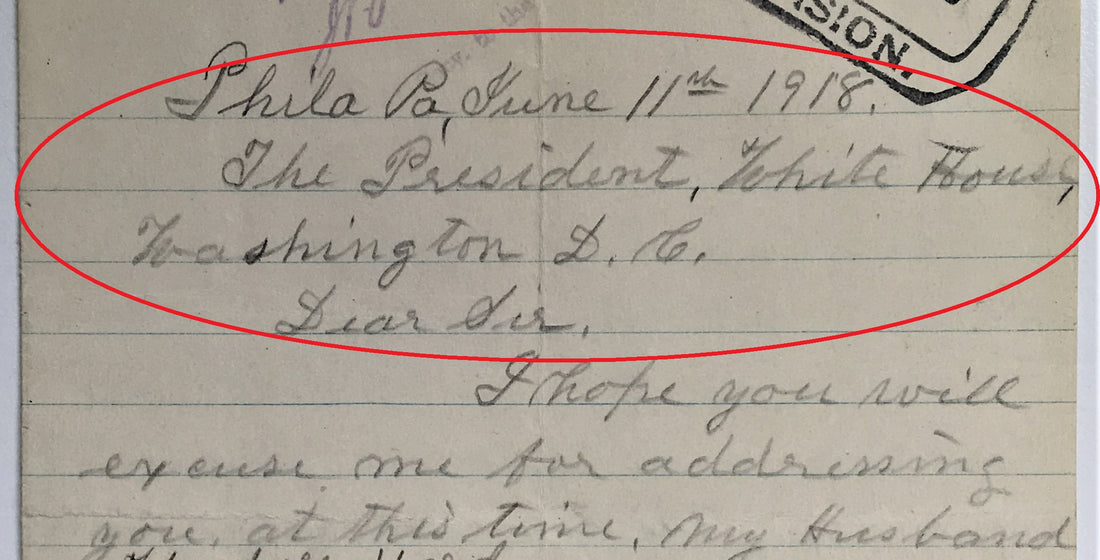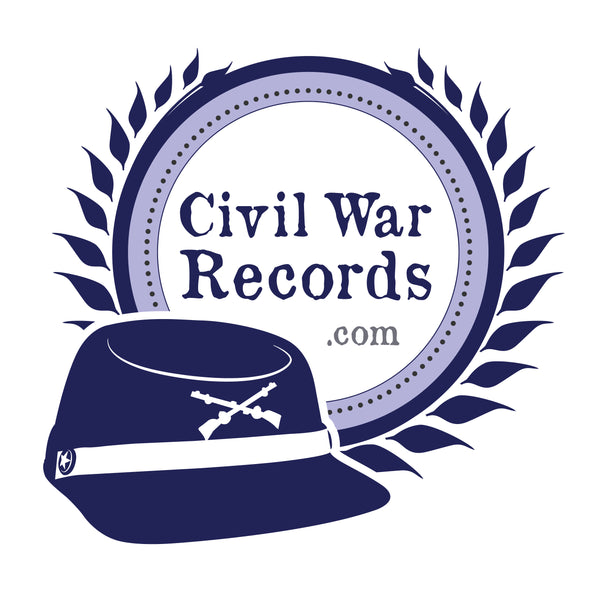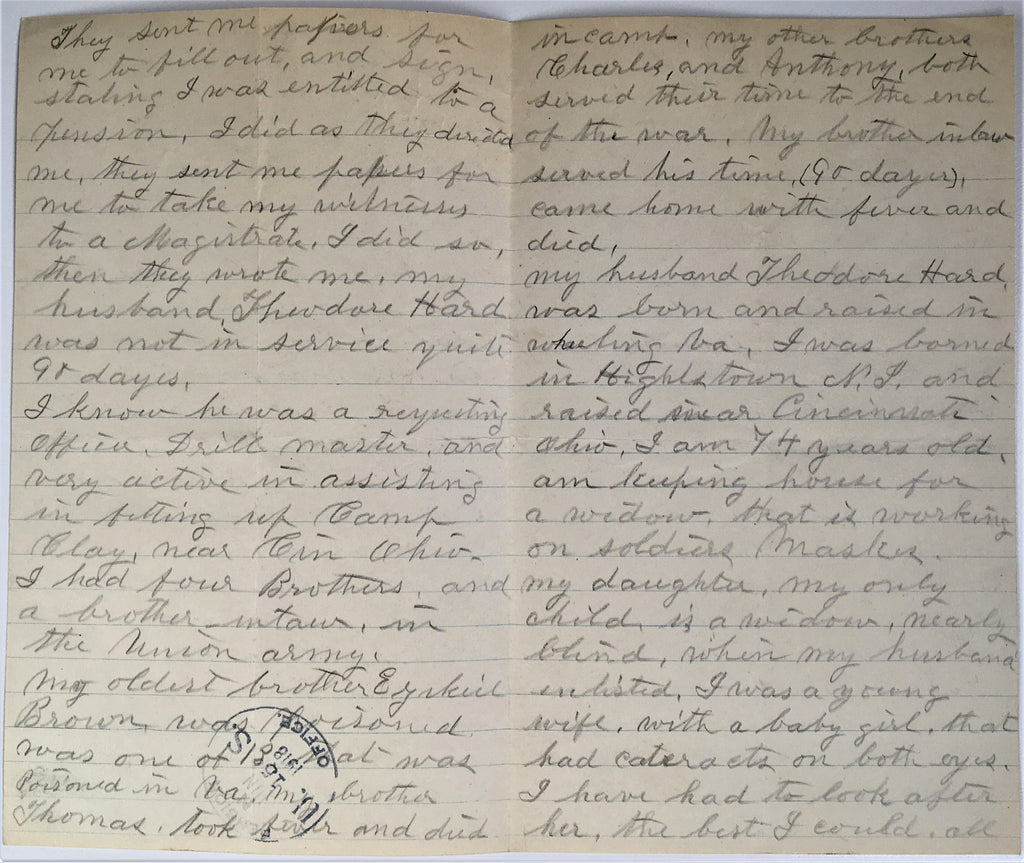
Dear Mr. President
Share
You never know what you’re going to find in a Civil War pension file. Nellie Hard, a widow of a Civil War veteran, applied for a widow’s pension in 1914. Her file contained a wealth of information about her and her family, and even documented an attempt to have the President of the United States intervene on her behalf.
Nellie’s husband, Theodore, enlisted in April 1861. He was discharged about three months later. When he died in 1914, Nellie was 69 years old and caring for herself and their only child, an adult daughter. Her daughter was widowed and was also blind, making it difficult to support herself.
Nellie first applied for pension benefits in 1914, but was denied. The pension law required that soldiers had to have served for 90 days in order to be eligible. The problem? Theodore only served 86 days. Nellie was determined though, and submitted multiple appeals.
The majority of the pension file contained letters that she wrote, appealing the denial. The first letter in the pension file was written to the pension bureau in 1916. This appeal was met with a letter in response, denying her again.
Two years later she took the unusual step of sending a letter directly to President Woodrow Wilson, asking for his help. She included more details in this letter, including the fact that she had four brothers and one brother in law who were all in the war. Three of them died as a result of their service in the war. That letter was passed along to the pension bureau, which prompted a letter to Nellie, denying her again.
She then went an extra step, and wrote to President Wilson’s wife, Edith, hoping that she could help get her pension application approved. This letter was also forwarded to the pension bureau, and in return Nellie was sent another letter, denying her latest appeal.
Nellie never was granted the pension benefits that she so desperately wanted. Her husband missed the 90 day minimum service requirement by four days, and the pension bureau didn’t make an exception for her. As sad as it is to read about her difficulties, it’s a great example of the value that these files have in our attempts to learn more about our ancestors.




